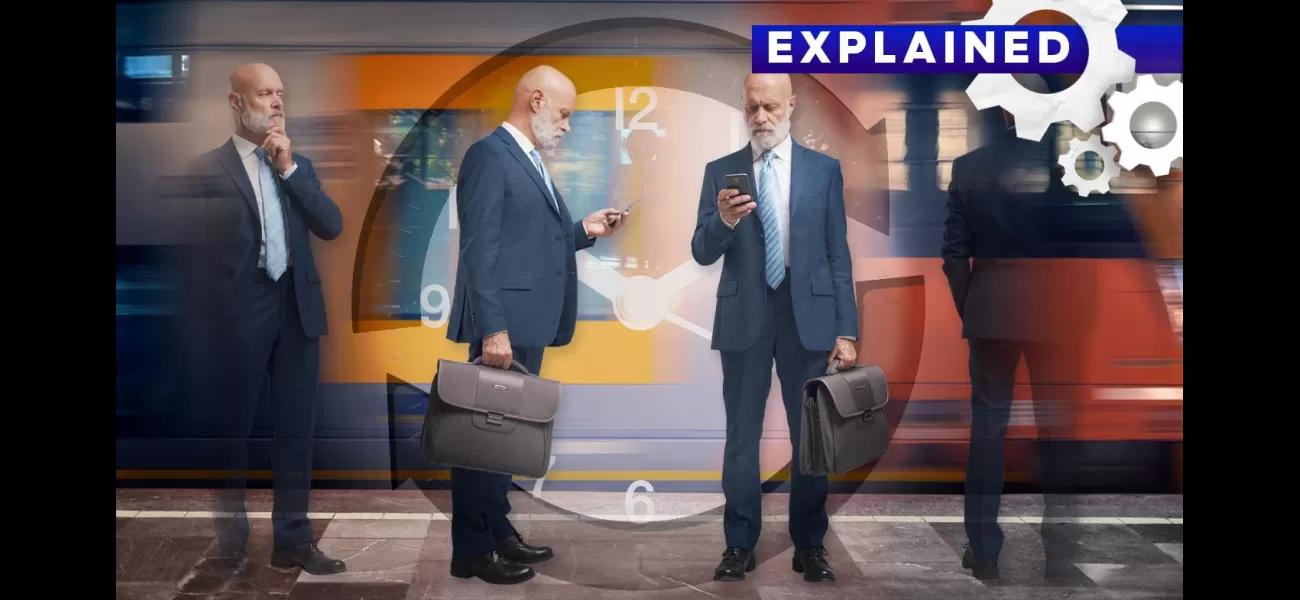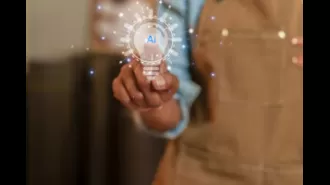Deja vu is a phenomenon that occurs when a person feels like they have experienced something before, even though they haven't.
Feeling familiar with something you've never encountered before is a strange occurrence.
August 10th 2024.

Have you ever experienced that strange feeling of déjà vu? You know, when you feel like you've been in a situation before, even though you haven't? It's a bizarre phenomenon that has puzzled scientists for years. While they can't fully explain it, there are some theories that attempt to shed light on what's going on.
The phrase "déjà vu" originates from French, meaning "already seen." But what exactly does it mean if you have déjà vu? Essentially, it's when your brain tricks you into feeling like a current experience is something you've already encountered in the past. We asked an expert to weigh in on the matter.
Dr. Amy Reichelt, a Senior Lecturer at the University of Adelaide, shared her insights with 9News. "Several neuroscience theories attempt to explain déjà vu, but we still don't have a conclusive explanation as déjà vu is very difficult to artificially evoke in a laboratory," she explained. "One theory proposes that déjà vu is caused by a mismatch in activation between systems in the brain that handle familiarity and recall."
In simpler terms, our brains have different systems for recognizing familiar things and recalling memories. When these systems get out of sync, it can lead to that eerie feeling of déjà vu. Dr. Reichelt further elaborated, "The temporal lobe, particularly the hippocampus, is involved in recognising familiarity, while the frontal lobes are involved in conscious recall. When these systems are out of sync, the brain could interpret a new experience as familiar."
But that's not the only theory out there. Another suggests that déjà vu is caused by a "short circuit" between our short-term and long-term memory systems. This can lead to confusion between a current experience and an existing memory, giving us the sensation of reliving something in real-time.
Interestingly, some researchers also believe that déjà vu may be linked to actual memories. "Déjà vu could also happen when a current situation resembles but is not identical to a past experience which can trigger the activation of a partial memory match, making the brain mistakenly recognise the new situation as something previously experienced," Dr. Reichelt explained.
So, are there any factors that make people more likely to experience déjà vu? It's been suggested that it's more common in younger individuals. However, in rare cases, it can also be a sign of a neurological disorder, specifically a type of epilepsy. "Déjà vu is reported by individuals with temporal lobe epilepsy, sometimes as a 'aura' before a seizure occurs, or as a manifestation of the seizure itself," Dr. Reichelt shared. "Epileptic seizures are generated by aberrant electrical discharges, and when this happens in the temporal lobe, particularly the hippocampus, memory systems become erroneously activated and can produce the sensation of déjà vu."
In conclusion, while scientists continue to study and explore the intriguing phenomenon of déjà vu, the mystery behind it remains. But one thing is for sure - it's a strange and fascinating experience that has captured the curiosity of many.
The phrase "déjà vu" originates from French, meaning "already seen." But what exactly does it mean if you have déjà vu? Essentially, it's when your brain tricks you into feeling like a current experience is something you've already encountered in the past. We asked an expert to weigh in on the matter.
Dr. Amy Reichelt, a Senior Lecturer at the University of Adelaide, shared her insights with 9News. "Several neuroscience theories attempt to explain déjà vu, but we still don't have a conclusive explanation as déjà vu is very difficult to artificially evoke in a laboratory," she explained. "One theory proposes that déjà vu is caused by a mismatch in activation between systems in the brain that handle familiarity and recall."
In simpler terms, our brains have different systems for recognizing familiar things and recalling memories. When these systems get out of sync, it can lead to that eerie feeling of déjà vu. Dr. Reichelt further elaborated, "The temporal lobe, particularly the hippocampus, is involved in recognising familiarity, while the frontal lobes are involved in conscious recall. When these systems are out of sync, the brain could interpret a new experience as familiar."
But that's not the only theory out there. Another suggests that déjà vu is caused by a "short circuit" between our short-term and long-term memory systems. This can lead to confusion between a current experience and an existing memory, giving us the sensation of reliving something in real-time.
Interestingly, some researchers also believe that déjà vu may be linked to actual memories. "Déjà vu could also happen when a current situation resembles but is not identical to a past experience which can trigger the activation of a partial memory match, making the brain mistakenly recognise the new situation as something previously experienced," Dr. Reichelt explained.
So, are there any factors that make people more likely to experience déjà vu? It's been suggested that it's more common in younger individuals. However, in rare cases, it can also be a sign of a neurological disorder, specifically a type of epilepsy. "Déjà vu is reported by individuals with temporal lobe epilepsy, sometimes as a 'aura' before a seizure occurs, or as a manifestation of the seizure itself," Dr. Reichelt shared. "Epileptic seizures are generated by aberrant electrical discharges, and when this happens in the temporal lobe, particularly the hippocampus, memory systems become erroneously activated and can produce the sensation of déjà vu."
In conclusion, while scientists continue to study and explore the intriguing phenomenon of déjà vu, the mystery behind it remains. But one thing is for sure - it's a strange and fascinating experience that has captured the curiosity of many.
[This article has been trending online recently and has been generated with AI. Your feed is customized.]
[Generative AI is experimental.]
0
0
Submit Comment





